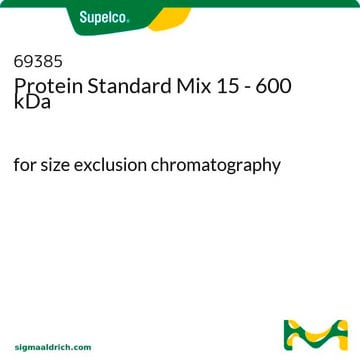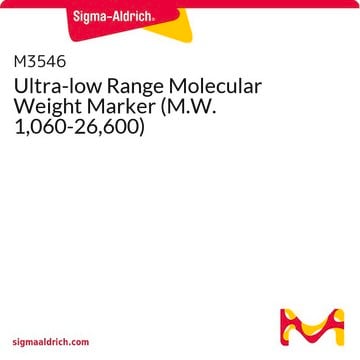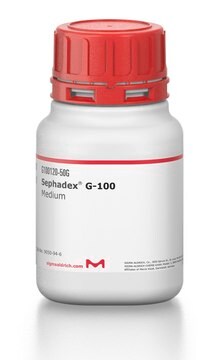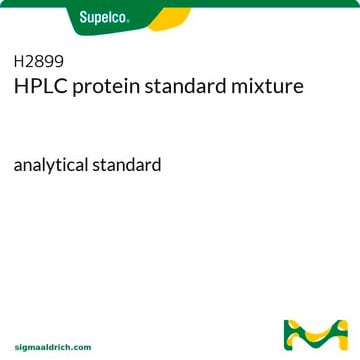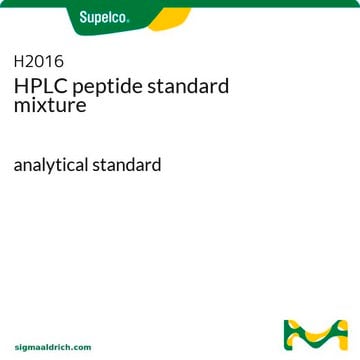MAB5372
Anti-Astrocytomas Antibody, a marker for Low Grade Astrocytoma, clone J1-31
ascites fluid, clone J1-31, Chemicon®
About This Item
Empfohlene Produkte
Biologische Quelle
mouse
Qualitätsniveau
Antikörperform
ascites fluid
Antikörper-Produkttyp
primary antibodies
Klon
J1-31, monoclonal
Speziesreaktivität
guinea pig, rat, human, mouse
Hersteller/Markenname
Chemicon®
Methode(n)
immunocytochemistry: suitable
immunohistochemistry: suitable (paraffin)
western blot: suitable
Isotyp
IgM
Versandbedingung
dry ice
Posttranslationale Modifikation Target
unmodified
Spezifität
Monoclonal antibody J1-31 was raised against crude homogenate of brain tissue from a multiple sclerosis (MS) patient (autopsy sample; Malhotra et al.: Microbios Letters 26:151-157, 1984). In human brain, MAb J1-31 recognizes an intracellular protein antigen (J1-31 antigen), which bands at approximately 30,000 daltons under reducing conditions for sodium dodecyl sulfate gel electrophoresis (Singh et al.: Bioscience Reports 6:73-79, 1986). By immunofluorescence microscopy, MAb J1-31 stains those cells that are also stained by antiserum to glial fibrillary acidic protein (GFAP), namely astrocytes, retinal Muller cells, and tanycytes in the ependyma (Predy et al.: Bioscience Reports 7:491-502, 1987). In addition, MAb J1-31 stains ciliated ependymal cells that do not express GFAP {Malhotra, SK (1989) J Neurosci Res. 22(1):36-49}.
Immunogen
Anwendung
Neurowissenschaft
Neuronen- & Gliamarker
Immunohistochemistry The antibody works on paraffin embedded tissue sections.
Immunocytochemistry
Optimal working dilutions must be determined by the end user.
Verlinkung
Physikalische Form
Lagerung und Haltbarkeit
Rechtliche Hinweise
Haftungsausschluss
Sie haben nicht das passende Produkt gefunden?
Probieren Sie unser Produkt-Auswahlhilfe. aus.
Lagerklassenschlüssel
10 - Combustible liquids
WGK
WGK 1
Flammpunkt (°F)
Not applicable
Flammpunkt (°C)
Not applicable
Analysenzertifikate (COA)
Suchen Sie nach Analysenzertifikate (COA), indem Sie die Lot-/Chargennummer des Produkts eingeben. Lot- und Chargennummern sind auf dem Produktetikett hinter den Wörtern ‘Lot’ oder ‘Batch’ (Lot oder Charge) zu finden.
Besitzen Sie dieses Produkt bereits?
In der Dokumentenbibliothek finden Sie die Dokumentation zu den Produkten, die Sie kürzlich erworben haben.
Unser Team von Wissenschaftlern verfügt über Erfahrung in allen Forschungsbereichen einschließlich Life Science, Materialwissenschaften, chemischer Synthese, Chromatographie, Analytik und vielen mehr..
Setzen Sie sich mit dem technischen Dienst in Verbindung.